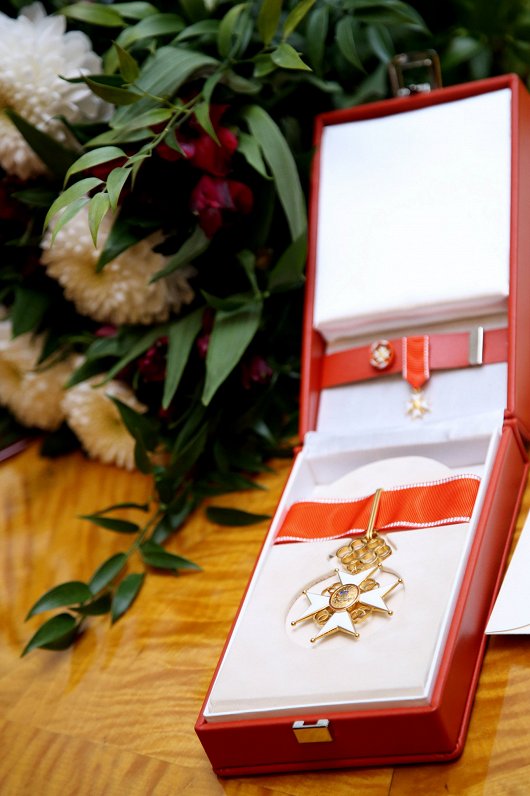The decision to revoke the order was made based on an article of the law that provides that the order may be revoked if a person has committed a shameful offense that was not known to the Chapter of Orders at the time of awarding the award.
“The Chapter of Orders withdraws state decorations from an individual who has been convicted of a voluntary crime; has committed a shameful deed that was not known to the Chapter of Orders as such time as the decision to award state decorations was taken and that is not compatible with the status of one who has state decorations… When a situation referred to in first two conditions occurs, the National Police are asked to confiscate the relevant Order, emblem of recognition, all relevant documents and miniature versions of the Order or emblem,” according to the Chapter of Orders’ own rules.
The Office of the President of the Republic, which oversees the Chapter of Orders told LETA that the Chapter of Orders does not comment on decisions made at its meetings or discussions held regarding the awarding or revoking of the highest state awards to specific individuals.
However, it is understood that the revocation is the result of harsh sentences against dissidents that Krastiņš passed while serving as a judge for the Soviet occupation regime in the 1980s.
In 1983, he tried a leader of the Latvian independence movement, Jānis Rožkalns, sentencing him to five years in prison and three years in exile.
Rožkalns told Latvian Television in an interview: “It was profitable for them to serve the Soviet regime, they were paid well for it… Krastiņš is not the only one who has been awarded an order that contradicts the life they lived.”
Rožkalns spent four years in detention. He never met Judge Krastiņš again after sentencing and never received an apology from him.
Rožkalns emphasized: “Any person can understand the basic things in life and regret them. Without an apology, there is no regret.”
